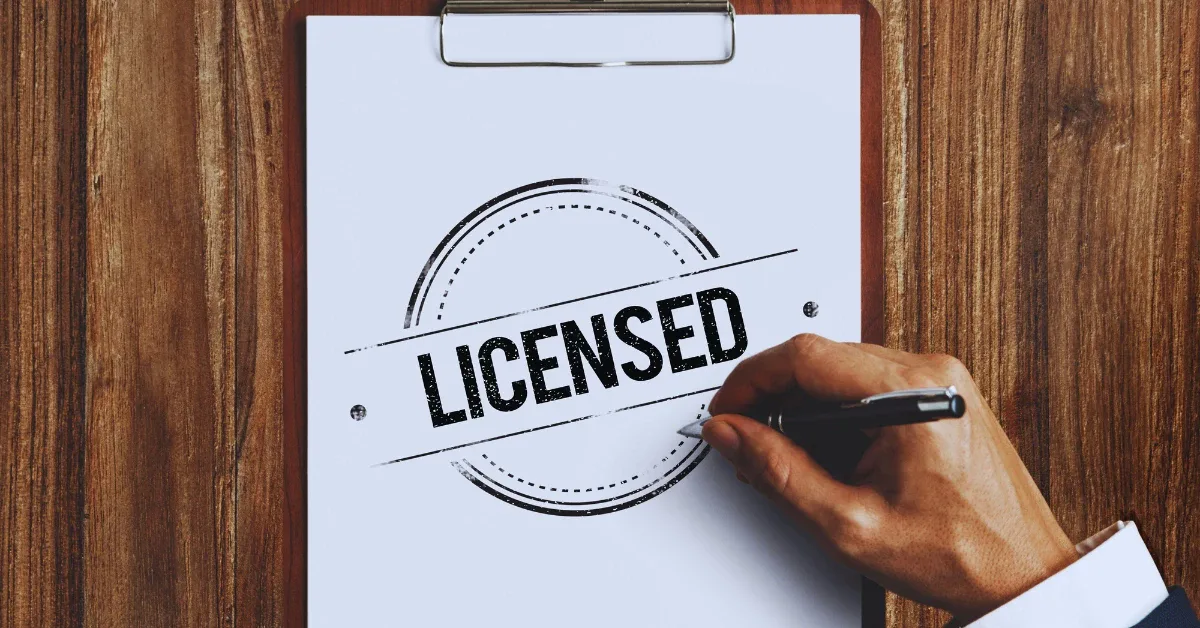What License Do You Need to Be a Landlord? Rental Awareness
To be a landlord, you mainly need a business license, which allows you to run a rental business. However, specific rules and regulations may vary, depending on the location and type of rental property.
In this article, we will discuss the essential licenses and permits needed to start a rental business, as well as other legal considerations to keep in mind as a landlord.

Understanding The Requirements To Become A Landlord
Becoming a landlord can be a profitable venture, but it comes with certain requirements that need to be met before you can start renting out your property to tenants.
Here we’ll discuss the key legal requirements and licenses you’ll need to obtain to get started.
State-Specific Laws And Regulations For Landlords
Each state has its own set of laws and regulations for landlords. It’s important to familiarize yourself with these requirements to ensure you are in compliance with the law.
Here are a few examples of state-specific requirements:
- California law requires landlords to provide a written rental agreement to their tenants that includes the rent amount, due date, and terms of the lease.
- In Texas, landlords must provide tenants with a written notice before entering the rental property, except in the case of an emergency or if the tenant agrees to the entry in writing.
- Florida law requires landlords to give tenants a 7-day notice to cure or vacate before filing an eviction lawsuit.
Importance Of Obtaining The Necessary Licenses And Permits
Obtaining the necessary licenses and permits is a crucial step in becoming a landlord.
It not only ensures that you are in compliance with local and state laws, but it also protects your business and investment.
Here are a few of the licenses and permits you may need:
- Landlord permit: Some cities require a landlord permit before you can rent out your property.
- Business license: You may need a business license to operate as a landlord.
- Rental property license: This license is required in some states to ensure that rental properties meet certain safety standards.
Remember, it’s always better to be safe than sorry. Failing to obtain the necessary licenses and permits can result in hefty fines or legal action.
Key Licenses And Permits Required For Landlords

The Different Types Of Licenses And Permits Required For Landlords
Being a landlord may seem easy, but it comes with responsibilities and legal obligations. One of these obligations is to acquire the necessary licenses and permits.
There are different types of licenses and permits required depending on the laws of the state you are in.
Here are the key licenses and permits that landlords should know about.
Basic Business License And Tax Registration
Before renting out a property, landlords should first have a basic business license and tax registration.
This license proves that you have a legal right to operate a business and collect rent for your property.
To obtain your basic business license and tax registration, you need to visit your local government office and provide the necessary documentation.
Also, landlords can register their properties online if it’s available in their state.
Landlord Licenses, Permits, And Certifications
The landlord licenses, permits, and certifications required may vary depending on the state and locality.
Below are some of the licenses, permits, and certifications that landlords should be aware of:
Landlord registration and rental license
Some states require landlords to have a rental license. It’s a permit that allows landlords to rent out their properties to tenants legally.
To obtain this license, landlords must provide their personal information and property details.
Lead paint disclosure certificate
If your property was built before 1978, you need to have a lead paint disclosure certificate.
It certifies that the tenants were informed about the risks of lead poisoning in the property.
Housing quality standards inspection
The local government may require this inspection to ensure that the rental property meets specific standards for tenant safety and health.
Fair Housing certification
Landlords who violate fair housing laws can face legal charges. To avoid this, many landlords prefer to have fair housing certifications, which demonstrate knowledge of fair housing laws.
Additional Licenses For Landlords Of Multi-Unit Properties
Multi-unit properties have their own set of legal obligations and licensing requirements.
Below are some additional licenses that landlords of multi-unit properties should consider obtaining:
Fire safety and building code compliance
The fire department or building inspector may require this to ensure that the property meets the requirements of fire safety and building codes.
Health department certification
This certification ensures that the property meets the cleanliness standards set by the health department.
Zoning permit
This permit proves that the use of the property meets the city’s zoning regulations.
As a landlord, it’s your responsibility to comply with all the laws and regulations enforced in your state or locality.
Do your research and obtain the necessary licenses and permits to avoid legal issues in the future.
The Process Of Obtaining Required Licenses And Permits
Being a landlord comes with legal responsibilities that should be met for legal compliance.
One of these responsibilities is obtaining the necessary licenses and permits.
Whether it’s a rental license, business license, or zoning permit, landlords should obtain the required licenses and permits before renting out the property to tenants.
Steps Involved In Obtaining The Necessary Licenses And Permits
The process of obtaining licenses and permits required for landlords varies in different states and cities. However, the following general steps can be followed in most states:
- Determine the types of licenses and permits required in your state or city.
- Gather all necessary documents, such as proof of ownership and identification.
- Complete the application process and pay any necessary fees.
- Get approval from the relevant authorities.
- Renew the license or permit on time to avoid penalties and legal consequences.
Documents Required For License And Permit Approval
To obtain a landlord license or permit, various documents are required. These include:
- Property deed or proof of ownership.
- Property inspection reports.
- Proof of liability insurance coverage.
- Tenant screening procedure documents.
- Eviction procedure documents.
- Criminal background checks and lease agreements.
Thorough Preparation And Knowledge Of State Regulations
As a landlord, understanding your state and city regulations is crucial. Proper preparation and knowledge of the legal requirements and procedures can save you a lot of trouble.
By knowing the required licenses and permits, gathering the right documents, and following the process correctly, you can avoid legal penalties, fines, tenant lawsuits, and even losing your property.
Consequences Of Operating As A Landlord Without Proper Licenses And Permits
Operating as a landlord without proper licenses and permits can have serious consequences, such as:
- Legal penalties, including fines, eviction, and imprisonment.
- Difficulty evicting tenants, since you lack legal standing.
- Damage to your reputation, as tenants, can easily spread negative reviews.
- Increased risk of lawsuits by tenants and other parties.
Pros And Cons Of Working With A Property Management Company

The Role Of Property Management Companies In The Rental Industry
Property management companies play a crucial role in the rental industry by managing residential or commercial properties for property owners.
These companies are responsible for handling all the critical aspects of the rental property, from rent collection to tenant screening and property maintenance.
They also ensure that the property is compliant with legal and financial regulations.
Key Benefits Of Working With A Property Management Company
Hiring a property management company can be extremely beneficial for landlords who want to focus on their daily work and avoid the stress of managing their rental properties.
Here are some of the key benefits of working with a property management company:
Legal and financial compliance
Property management companies have in-depth knowledge of the legal and financial laws and regulations that pertain to rental properties.
They ensure that your property is up to code and stays compliant with all federal, state, and local regulations.
Rent collection and property maintenance
One of the most significant benefits of hiring a property management company is that they handle rent collection and property maintenance.
They ensure that all rents are paid on time and that any necessary repairs are done promptly.
Tenant screening and communication
Property management companies are experienced in screening potential tenants, managing lease agreements, and handling tenant communication.
This takes the load off landlords and gives them peace of mind knowing that the property is in good hands.
Legal And Financial Compliance
When it comes to rental properties, landlords need to comply with a host of legal and financial regulations.
Property management companies provide expert guidance and ensure landlords comply with all legal and financial requirements.
This saves landlords time, money and enables them to avoid penalties and legal issues.
Rent Collection And Property Maintenance
Rent collection and property maintenance are time-consuming and require regular attention to detail.
With a property management company, landlords can rest assured that their rental properties are well-maintained and that tenants pay their rents on time.
The property management company handles all maintenance issues, including repairs, inspections, and upkeep of the property.
Tenant Screening And Communication
Tenant screening and communication are crucial for landlords who want to ensure that their property is cared for properly.
Property management companies have expertise in screening potential tenants, running background checks, and communicating with tenants.
They handle lease agreements and collect rents, making the entire process seamless for landlords.
Drawbacks Of Working With A Property Management Company
Working with a property management company has several benefits, but there are also some drawbacks that landlords should consider before hiring one.
Here are some of the potential drawbacks:
Cost implications
Property management companies charge fees for their services, and these fees can range from a percentage of the rent to a flat fee.
These fees add an extra expense to landlords, which can significantly impact their rental income.
Lack of direct control over property management decisions
Property owners have less control over the day-to-day decisions made by property management companies.
Although landlords can provide guidance, the property management company ultimately makes the final call.
Potential conflicts of interest
Property management companies may have interests that conflict with those of property owners.
For example, a property management company may be incentivized to keep a problematic tenant in the property if they are receiving a percentage of the rent.
Factors To Consider When Deciding To Work With A Property Management Company
Personal Goals For Real Estate Investment
Whether to work with a property management company or not is ultimately a personal decision based on one’s real estate investment goals.
Here are some factors to consider:
- Do you want to be actively involved in managing the rental property or have a hands-off approach?
- Are you looking to maximize profits or simply maintain an income stream?
- Do you have a long-term or short-term investment strategy?
The Complexity Of The Rental Market In A Particular Area
The rental market varies from area to area, and managing a rental property can be more complex in some markets than others. Things to consider include:
- Local and state laws regarding rentals can vary greatly depending on the area.
- The competitive nature of the rental market can affect vacancy rates and rental prices.
- A property management company with local expertise can provide valuable insight into the market.
Availability To Manage The Day-To-Day Activities Of The Rental Property
Managing a rental property can be time-consuming, and it may not be feasible for some landlords to take on the responsibility themselves. Some things to consider include:
- Can you be available 24/7 to handle tenant needs and emergencies?
- Do you have the expertise to handle any maintenance or repairs that may arise?
- Do you have a backup plan in case you become unavailable or unable to manage the property?
Financial Considerations For Budgeting And Planning With A Property Management Company
Working with a property management company can be a worthwhile investment, but it is important to consider the financial implications. Some things to keep in mind include:
- Property management fees can vary greatly depending on the services provided.
- A property management company can help optimize rental income and reduce expenses, but its services may come at a cost.
- It is important to set a budget and understand the financial implications of working with a property management company in the short and long term.
Tips For Successful Property Management

The Responsibility And Commitment Required Of A Landlord
Being a landlord comes with a lot of responsibility and commitment; it’s not just about renting out your property and collecting income.
As a landlord, you must stay up to date on changes in the law, manage finances, address tenant concerns, and deal with maintenance issues on the property.
Here are some key points to bear in mind:
- Always provide your tenants with a habitable living space that is safe and complies with the law.
- Be responsive to tenant complaints and concerns, and make necessary repairs and updates promptly.
- Familiarize yourself with applicable laws regarding landlord-tenant relations, and act accordingly.
- Be prepared to handle any issues that may arise while maintaining a good relationship with your tenants.
- Create a tenancy agreement that clearly outlines the terms of the lease, such as rent amount, due date, and the duration of the tenancy.
Creating A Successful Rental Property Marketing Strategy
A successful rental property marketing strategy relies on several factors, including proper targeting, an excellent online presence, and effective communication.
Here are some tips to consider:
- Determine your target audience and tailor your marketing strategy to appeal to them specifically.
- Create a professional and visually appealing website where potential tenants can get all the information they need about your property and how to apply.
- Incorporate targeted keywords and phrases that describe your property’s amenities and location in your online content to attract potential tenants from search engines.
- Advertise your property on social media platforms and other property listing services such as Zillow and Craigslist.
- Consider hosting virtual tours of the property to make it easier for prospective tenants to see the space even if they’re unable to visit in person.
Pricing Strategies And Market Analysis For Rental Properties
Pricing your rental property can be challenging but understanding the market is crucial.
A rental market analysis will help you understand the current market trends and how much your property is worth.
Here are some key points to keep in mind:
- Research similar rental properties in the area to gauge the market rates, amenities, and services they are offering.
- Set your rent to reflect the valuations of comparable properties in your locality and include expenses you need to cover in your pricing calculations.
- Be open to tweaking your pricing strategy based on any changes in the market, like shifts in demand and supply.
- Set reasonable rent prices that will attract tenants but still deliver a profit for you as a landlord.
- Provide incentives like rent discounts or free utilities for long-term leases.
Understanding Tenant Rights And Responsibilities
One of the most significant challenges of being a landlord is managing tenant behaviour effectively while respecting their rights. Here are some key points to consider:
- Ensure tenants understand their rights under the law. This includes how much notice they need to give to terminate their lease, how to request repairs, and how to handle any disputes that may arise.
- Be aware of your responsibilities as a landlord, including property maintenance and providing a safe living environment.
- Be transparent in your communication and ensure tenants understand all the details of the lease agreement before they sign.
- Have a solid understanding of your local eviction laws, and make sure that any eviction, if necessary, complies with these laws.
- Respect the privacy of your tenants and provide advance notice before conducting any inspections, repairs, or maintenance that requires access to the property.
Effective Communication And Problem-Solving Strategies
Being an effective landlord means having excellent communication and problem-solving skills. Here are some key points to bear in mind:
- Set up a clear and accessible channel of communication for tenants to contact you with any issues or concerns.
- Be responsive to tenant issues, and create a process for resolving complaints and requests promptly.
- Be open and transparent with tenants about the property details and rental policies to avoid any misunderstandings.
- Stay calm and objective while handling any conflicts and aim to achieve resolution through discussion and negotiation.
- Acquire essential skills, such as active listening, empathy, and conflict resolution, to deal with tenant concerns and foster a positive landlord-tenant relationship.
With these tips, you can become a successful landlord and create a positive environment for yourself and your tenants.
Frequently Asked Questions On What License Do You Need To Be A Landlord
What Kind Of License Do I Need To Become A Landlord?
You don’t need a specific license to become a landlord, but you need to comply with local and state laws.
Do I Need A Real Estate License To Become A Landlord?
No, you don’t need a real estate license to become a landlord. However, having one can be beneficial.
What Permits Do I Need To Rent Out My Property?
Rules vary by state and city. However, you may need a rental permit, business license, and safety inspections.
What Kind Of Insurance Do I Need As A Landlord?
You’ll need landlord insurance to protect your property and liability. Review commercial insurance policies to get the right coverage.
Conclusion
Acquiring a landlord license isn’t a universal requirement, but it’s crucial to your rental business.
Always stay informed about your local regulations, ensuring you meet all stipulations.
Remember, being a responsible landlord means going beyond just collecting rent—it’s about delivering a safe, compliant space for your tenants.
Reference
https://www.montgomerycountymd.gov/dhca/landlords/rental-license.html